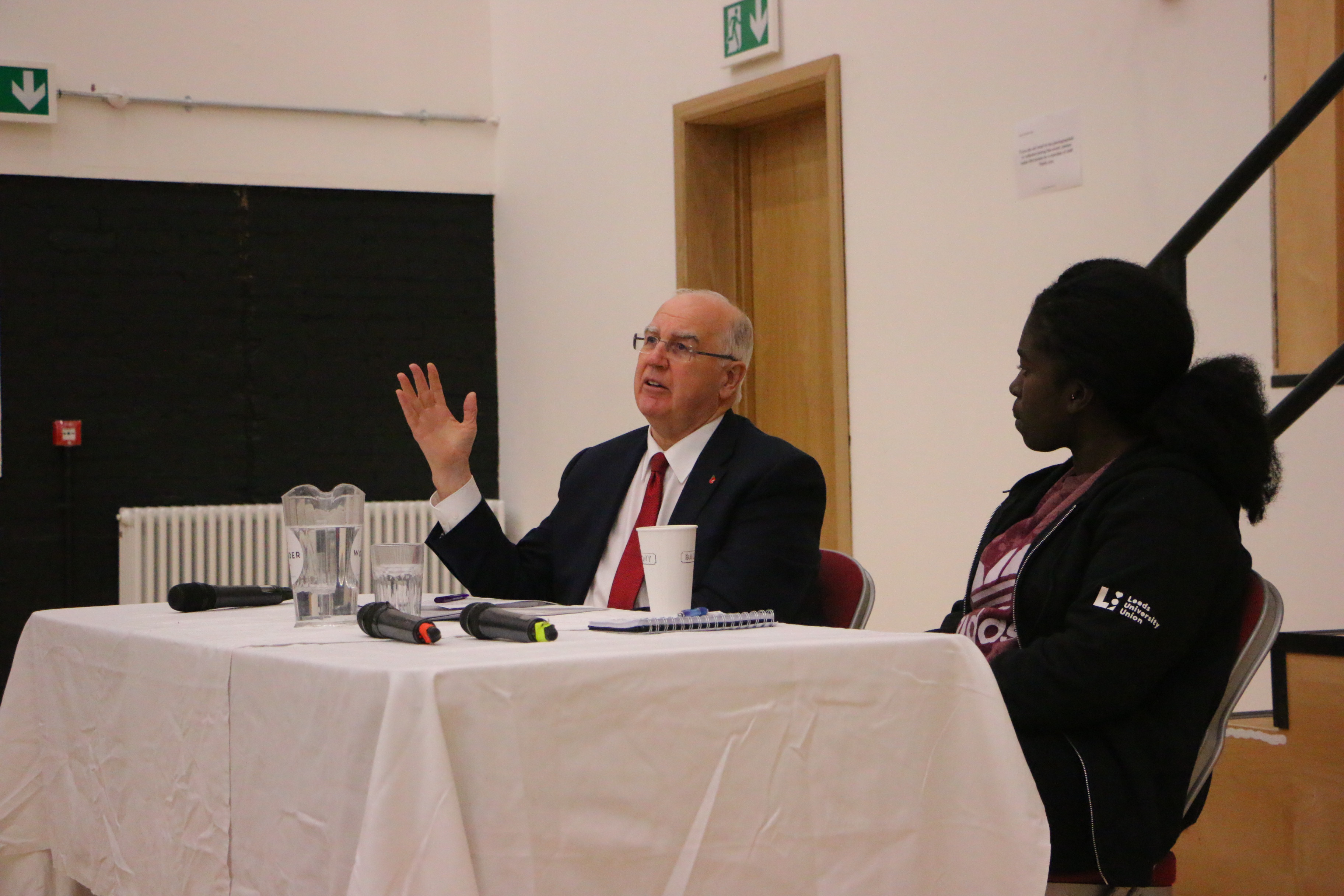In a Q&A session, VC Alan Langlands condemns government policy and hears students’ concerns about University failings.
The event began with Sir Alan Langlands outlining his views on how Brexit could affect the University of Leeds, warning that the exit from the EU could lead to a drop in international student numbers as well as making it harder to attract top academics from abroad – a fear given substance by the UCAS report of a drop in EU student applications also reported upon by The Gryphon this week (see p.6).
He also expressed his opposition to the government’s plans to include international students in overall migration reduction targets, condemning the Home Secretary Amber Rudd’s speech to the Tory conference as “ill-judged”. He even claimed to be more worried about the government’s attitude to migration than he is about Brexit.
When asked about the status of students and staff at the university from the EU, he said that he hoped the university could remain open and outward looking. “It would be shameful if we destablise the lives of EU citizens involved with the university” he said.
His criticism of the government continued in a carefully worded critique of the new Higher Education Bill. He claimed it would increase the marketisation of the higher education system, something he later said he opposed and viewed as highly dangerous for the reputation of British universities.
However, he also attempted to reassure students worried about the threat to study abroad programmes posed by Brexit. He said that he expected mutually beneficial, bilateral arrangements between universities, such as exchange programmes and joint research projects, to continue as there is a desire in universities across Europe for cooperation.
Later in the Q&A, as questions were opened up to the audience, the issue of student democracy and representation was raised by a number of students who argued that the University council ignored the results of student referendums on issues such as university funding for fossil fuels and the presence on campus of companies involved in arms sales, such as BAE.
Other members of the audience questioned how it was fair for students who have less contact time to pay the same as those with more, effectively subsidising the courses which are more expensive to run. Sir Alan was sympathetic to the issue but said that he couldn’t see a better alternative.
Finally, the lack of BME students and staff at the university was raised. The proportion of BME students and staff is below that of many other universities and the city of Leeds in general. Sir Alan agreed, stating that “a university should reflect the community it serves” and conceding that there was more to be done to encourage greater representation of ethnic minority groups.
Ian White
(Images: Nikki R Haldane Bevington)

